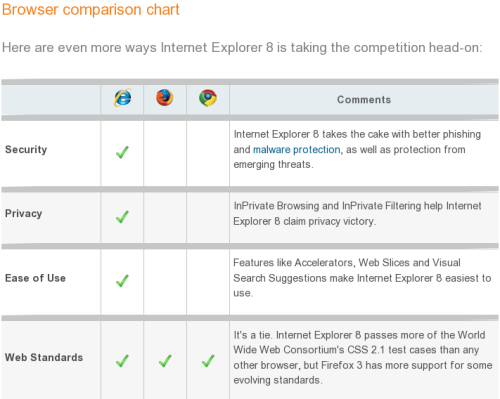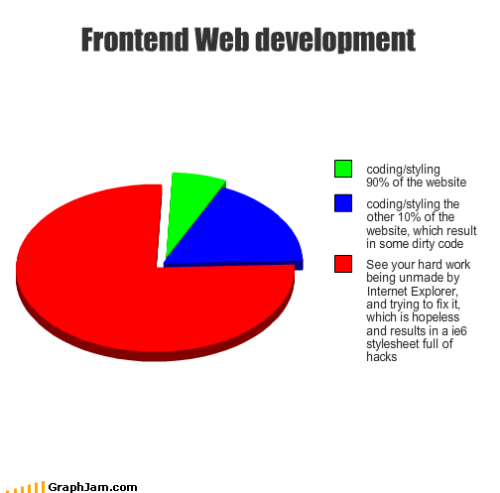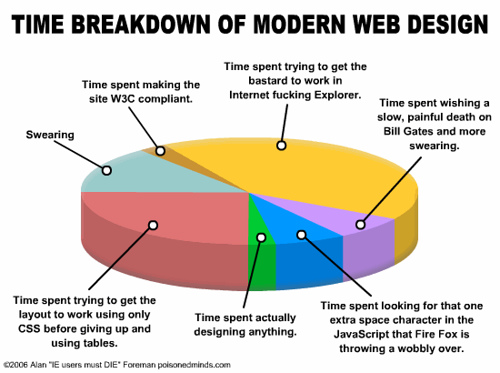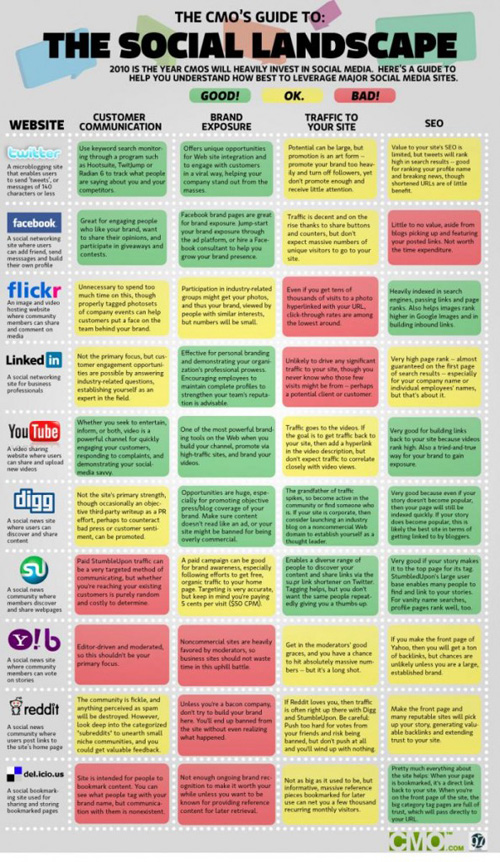I came across this excellent chart at Omniture web site. While it is mostly aimed at marketing people, it’s still pretty useful for everyone on the ewb to have an overview of which social networks work better for which purposes.
Tag: marketing
Forget the URL
Just yesterday I was talking with a few people about the Web and how things are changing, and the subject of URLs came up. And I shared my opinion on the matter – URLs don’t matter. Before you start arguing, I want to make it clear that I do understand that there are exceptions to every rule and no assumption stays true forever. But on the other hand, that’s what I believe.
I think every Web surfer answers this question to himself at certain point in time. Are all these URLs that I visited, searched for, and bookmarked over the years matter? And I suspect that quite a few of those people will answer as I do – “no”. I had a sneaky suspicion for some time, but it was delicious social bookmarks web service that made me confident about this.
The thing with delicious is that initially it was available at http://del.icio.us . And as you might guess, there quite a few problems with this URL. Firstly, the word “delicious” is not in the active vocabulary of most non-native English speakers. Secondly, even those who know the word, have troubles spelling it correctly. Thirdly, those who know how to spell it, never seem to guess where to put the dots. And fourthly, the logical line between the meaning of the word “delicious” and a social bookmarking web site is vague at best.
However, that didn’t stop del.icio.us from becoming the most popular social bookmarking web site on the Web. And that was when I became confident in that the URLs don’t matter any more. Very few people will remember them. Most people will find the site with the help of a search engine. And those who are really interested in getting back to it, will bookmark it. It’s that simple.
What about brand names, you ask? Brand names are important. But you can avoid linking brand names to URLs. What about people’s names? Only a few will remember them. What about original, non-standard domain names? Only few of those will be remembered, the rest will search and bookmark. Why do I have mamchenkov.net domain name then? Because it was available and because it links to my name nicely. If it wasn’t there, I’d use something else. And, in fact, I did use a couple of other domains before I registered mamchenkov.net .
Why all of a sudden I started talking about it? Because today I came across someone else saying practically the same thing – “Do URLs matter anymore?” article over at CNET News, and I quote:
People still try to trade the most simple URLs for hopeful hundreds of thousands. They will still line up in the hope of getting a vanity URL from Facebook. But don’t most people simply go to the little search box, type in the name of what they’re looking for, and search? If it’s something they want to go back to, they’ll bookmark it. But they won’t remember what the URL is. For the simple reason that they don’t need to.
"Browser facts" from Microsoft
Google Blogoscoped brings to our attention Microsoft’s Browser Comparison chart.

This is an excellent marketing campaign. I am a big fan of using humor in the advertising, and this is a good example of it. Everyone who has every tried to build a web page knows how horrible the state of the modern browsers is, and how even more horribly standing out Microsoft Internet Explorer is. It’s so horrible that it is even hard to make it funny, but this time Microsoft succeeds.
Just to balance it out a little bit, here are a few random charts that I picked from Google Images search results for “web developer time chart“.



What’s in the name?
Watching large businesses can often be entertaining, especially here, in Cyprus, where they seem to think that nobody outside the island will know what they do. Fresh are the memories of Woolworths malls re-branding to Ermes, and then to Debenhams, within the same year or so. And here comes the new story of the recently opened Tiffany Shopping Mall in Limassol. Apparently, the name conflict was enough for an American Tiffany & Co. to start legal proceedings. Shortly after that, Tiffany Shopping Mall was renamed to “My Mall”.
Firstly, how difficult is it to Google the name before opening the biggest store in town? I guess, that’s asking too much.
Secondly … My Mall? Really? The only worse name that I can come up with is iMall. Yes, that bad. Even “The Mall” is better.
A little thought on marketing
Sometimes, it feels like marketing is the hype of the millenium. Or a decade at least. There are marketeers, marketing divisions, online marketing, marketing this and marketing that. But what the heck is this marketing thing after all? Can we have it in simple terms?
Well, either I don’t understand a lot (and I don’t claim that I do), or I haven’t met with the right marketing people, or both, or something else, but what I am thinking is that marketing on its own is nothing. Nada. Not at all.
Before you eat me and my old shoes, let me explain. Marketing is that thing that supposedely helps the product (or service for that matter) reach the customer. Or the other way around. And then maybe even convince the customer that he is actually satisfied by what he got. Or maybe I am way off already.
Anyway. To do that (connect the customer with the product or service), marketing people need to know three things. First is the product or service – the destination. Second is the customer – the source. And third is, well, marketing – the path or possible pathes between the two. Am I even remotely right ono this? If I am, then let me tell you something – this doesn’t work. How about that, eh?
Marketing on its own doesn’t work for exactly the same reasons that MIS doesn’t work. MIS is this gray area between Information Technology and Business Administration. It’s supposed to help them communicate with each other. But because MIS never (or almost never, or extremely rarely) truly understands both the business side and the technical side, it only makes things worse. Instead of having two languages – one very technical with lots of terminology and precise definitions, and another one business – with lots of money and people-related processes – the company now has to speak three languages, with the third one being a weird dialect combined and distored from the other two.
The product and the customer are like two magnets. When connecting them, they will either be of opposite polarity and will hurry towards each other and live happily ever after, or they will resist each other as much as they can. Is it possible to bring two magnets of the same polarity to each other? Yes. If the magnets are small and you hands are strong, you can pull them together. That’s marketing for you. Let it go and both magnets would be much happier. And if they were of the different polarity? Guess what? You don’t need much force to put them together.
Back from the abstract world. I think marketing makes sense on the secondary level. That is, everyone should have a bit of marketing knowledge – from sysadmins and programmers to accountants and managers. But marketing shouldn’t stand on its own. In fact, if marketing is taught to everyone, then it can be that common language for everyone to help to understand each other. The one that MIS so miserably failed to be.
Those who are at the top, they want to grow, increase, make more and better. Those are down below, actually doing things, really know how to make things better or faster. The problem is that they can’t communicate with each other usually. So what they need is a little help in this area. Not someone else who neither understands what is possible or not or how big or fast things can go.
That’s about it, minus a few disclaimers.
Disclaimer #1: all my knowledge of marketing came from working at or talking with people who are working at small or medium companies, the majority of which deal with information and technology.
Disclaimer #2: I was thrown off balance by a some marketing types recently.
Disclaimer #3: I had a few pints of a lovely Guiness draught before I typed this whole post in.
